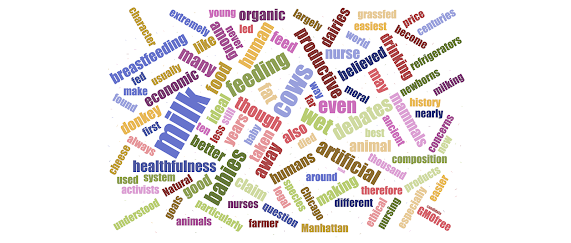I conducted a survey about "drinking milk" on monkey survey. Fortunately, 19 people answered this survey. I appreciate everyone who cooperated! I will mention the results from now. First, most of the people who answered this survey were 18-24 years old . For the second question, I asked "How often do you drink milk?" About 1/3 answered that they drink milk everyday . Some answered that they drink soy milk everyday. For the third question, "What kind of milk do you drink?", most people answered they drink whole milk . There were a few people who drink soy milk and low-fat milk. For the fourth question, "What time of day do you drink milk or other milk substances?", about half of the people answered that they drink milk in the morning . For the fifth question, I asked "What is the occasion/reason for drinking milk or other milk substances?" Most people answered that they drink them when they feel like drinking it . For the sixth qu...

You have some fascinating questions. I especially like the questions about other types of animal milks (like goat milk and yak milk). It's interesting that when most people these days think of milk, they automatically think "cow's milk."
ReplyDeleteOne of your questions is worded in a rather biased way, I thought:
"Which type of milk is the healthiest to drink — fat free, low fat, reduced fat or whole milk?"
The question seems to assume that cow's milk is healthy, not just that some types are more healthy than others.
Your question about whether milk is healthy for cancer patients is particularly interesting. In some cases things that would be extremely unhealthy for normally healthy people (like chemotherapy drugs) are life-saving for cancer patients. So, there could be some paradoxical effect regarding milk given to cancer patients. It's a unique questions to address.
I found question 23 particularly interesting because I didn't know that there were different types of milk other than cow! I don't like milk very much, but I wanted to try the other kinds because maybe they taste different. One question I have is that in Japanese, milk is written as “牛乳(cow's milk)", but is milk from other animals also written as "牛乳" in Japan!?
ReplyDeleteI also found question 29 interesting! Because when I was in elementary school, I gave most of the school lunch milk to my friends, but I am taller than the average height of Japanese women. I would like to know what is the relationship between drinking milk and growing taller.